Israel is embroiled in a new and dangerous round of fighting with the Palestinians on three separate fronts.
For the past few days, Israeli forces have been engaged in battles with Palestinian Arab protesters in East Jerusalem, the Islamic fundamentalist Hamas regime in the Gaza Strip, and Israeli Arabs of Palestinian descent.
The violence, probably the worst since the 2014 Gaza war, has so far claimed the lives of 53 Palestinians in Gaza and six Israelis. It may exact a much higher death toll if, as expected, it escalates into a full-scale war or a third Palestinian uprising.
Despite calls for a ceasefire, Defence Minister Benny Gantz said that Israel’s military campaign in Gaza has just begun and that “there is currently no end date.”
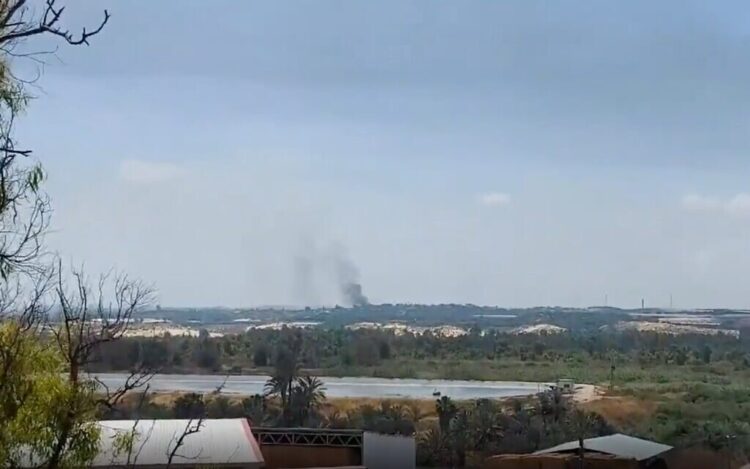
The Palestinians have fired more than 1,000 rockets into Israel, triggering massive Israeli retaliatory air strikes. The majority of projectiles have been downed by the Iron Dome missile defence system, but missiles have struck Jerusalem, Tel Aviv, the Tel Aviv suburbs of Holon and Givatayim, Rishon Lezion, Lod, Ashdod and nearby communities and Beersheba.
For about two hours on May 11, Ben-Gurion Airport stopped all air traffic, diverting flights to Cyprus. Several roads near Gaza were closed and train service between Beersheba and Ashkelon was halted.
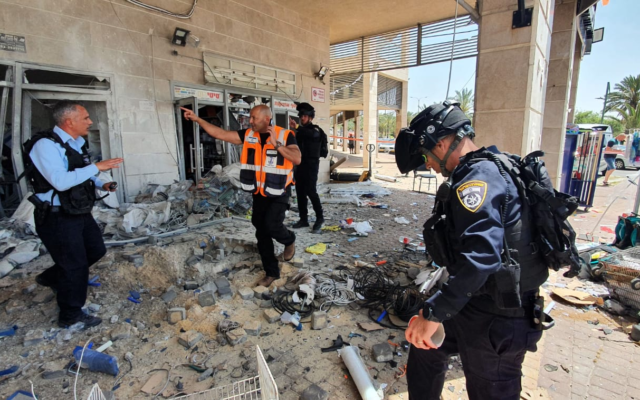
The Israeli Air Force, the long arm of Israel’s armed forces, has destroyed arms depots and weapons factories, levelled two empty high-rise apartment buildings housing Hamas offices, obliterated police headquarters, and killed several Hamas and Islamic Jihad commanders.
The battles have been brewing for weeks.
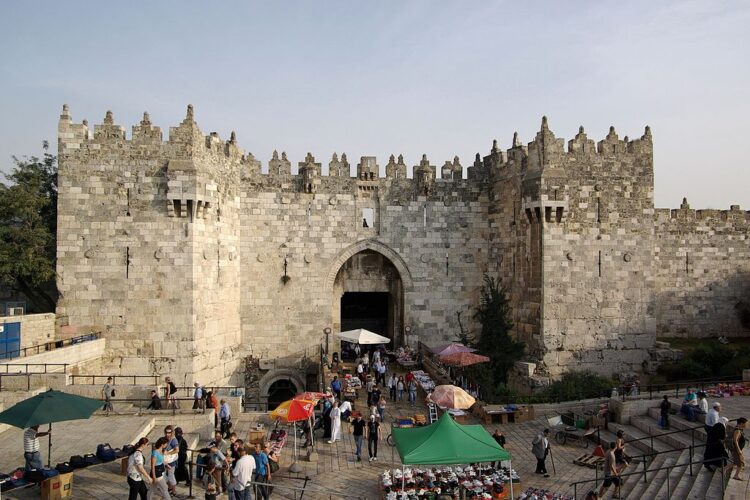
Palestinians in East Jerusalem rioted when the Israeli police erected barriers at the Damascus Gate to control crowds gathering to break the fast during the Ramadan holiday.
Israel annexed East Jerusalem in 1967 and amalgamated it with the western district of the city, Israel’s capital before the Six Day War. Palestinians claim East Jerusalem as the capital of a future Palestinian state.
In the wake of unprovoked attacks on Jews by Palestinians in Jerusalem, Jewish ultra-nationalists marched through the city shouting “Death to Arabs” and fought with Palestinian protesters.
The red hot tension sharpened as Israel’s Supreme Court was due to hand down a verdict on May 10 on a long-running dispute over the impending eviction of six Palestinian families from their homes in Sheikh Jarrah, a neighborhood in eastern Jerusalem that Israeli religious nationalists refer to as Shimon Hatzadik.
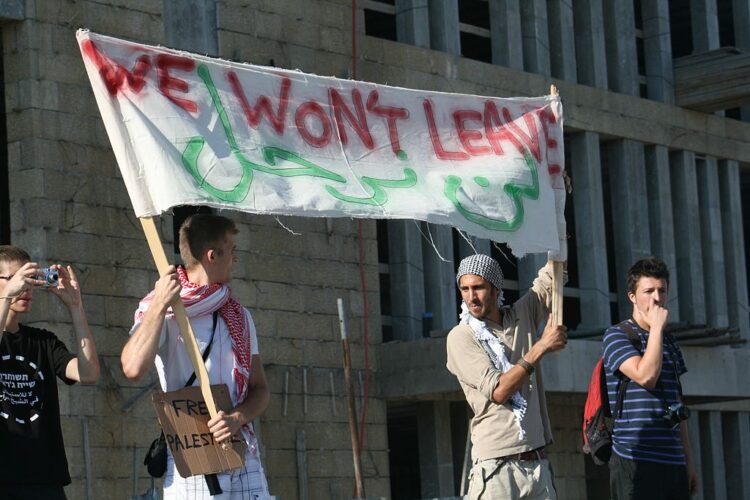
On May 11, the court delayed the case by a month so that it can be studied by Attorney-General Avichai Mandelblit.
During the 1948 Arab-Israeli war, Jews living in Sheikh Jarrah fled and were not permitted to return after Jordan’s Arab Legion conquered East Jerusalem. Their homes were given to Palestinian refugees who had voluntarily left or had been expelled from Israel.
With Israel’s conquest of East Jerusalem, the descendants of Jewish evictees branded the Palestinians as squatters and petitioned Israeli courts to allow them to reclaim the buildings and evict the Palestinians, who say their ownership is based on Ottoman land deeds.
An Israeli law, enacted in 1970, permits Jews to reclaim property in East Jerusalem. But Palestinians who lost property in 1948 in what is now Israel cannot make similar claims.
According to Peace Now, some 3,000 Palestinians in 200 buildings face eviction, while more than 20,000 Palestinian homes in eastern Jerusalem are under the threat of demolition.
The Israeli government portrays this conflict as a mere real estate dispute, but in fact it is an increasingly bitter struggle between Israel and the Palestinian national movement for supremacy in Jerusalem.
With protesters from both sides confronting each other in Sheikh Jarrah, battles erupted inside the Temple Mount compound, the holiest site in Judaism and the third most holy place in Islam.
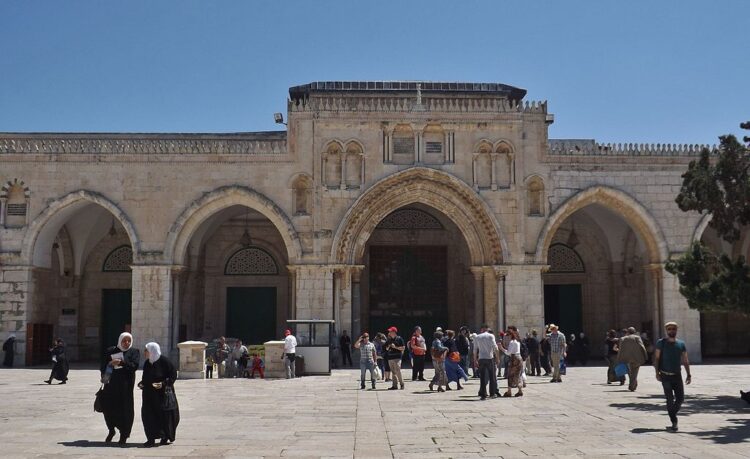
As Palestinians left the al-Aqsa mosque, they shouted anti-Israel slogans and threw stones at Israeli police, who replied with rubber-coated bullets, stun grenades and noxious gas. A few of the grenades landed in the mosque, causing further outrage among Palestinians.
Saleh al-Arouri, a top-ranking Hamas official, denounced Israeli “provocations” in Jerusalem and threatened to respond with force. His colleague, Mohammed Dief, the commander of Hamas’ armed wing and the object of Israeli assassination attempts in the past, warned that Israel would pay “a very heavy price” for what he described as “the aggression against our people in Sheikh Jarrah.”
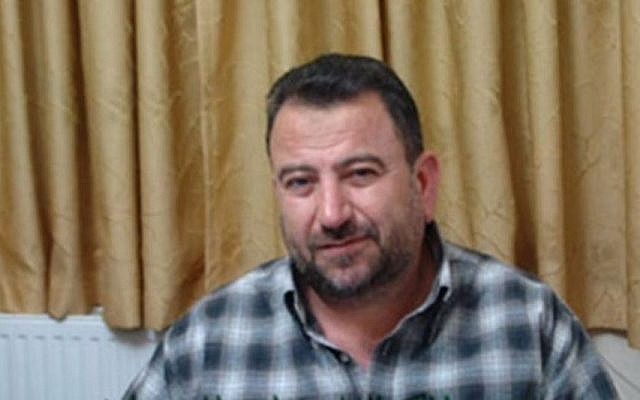
In a bid to deescalate the crisis, the Israeli police rerouted the annual Jerusalem Day march, an annual event commemorating Israel’s capture of East Jerusalem, from the Damascus Gate to the Jaffa Gate.
Ismail Haniyeh, a Hamas leader, claimed that the Supreme Court’s decision to delay evictions in Sheikh Jarrah and the decision by the police to prevent Jews from marching through the Damascus Gate signified a victory for the Palestinians. “We have managed to create an equation linking the Jerusalem and Gaza fronts,” he boasted in a veiled effort to wrest the Palestinian leadership from the Palestinian Authority, which is headed by Mahmoud Abbas.
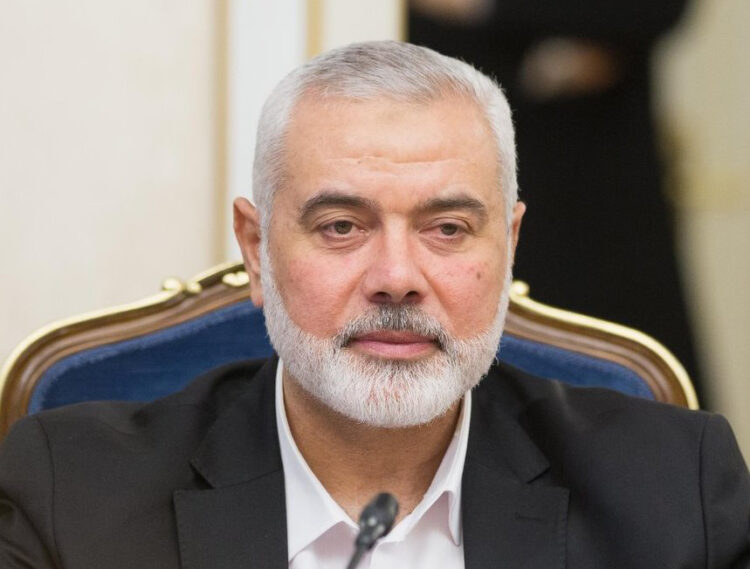
As he spoke, the heaviest round of fighting since last August erupted, with Hamas and Islamic Jihad launching a barrage of rockets toward Israeli cities and towns and with Israel undertaking fierce counter strikes.
In recent months, the Gaza border area had been relatively quiet, notwithstanding an outburst of heavy fighting at the end of April.
Last October, Israel and Hamas agreed to a six-month truce mediated by Egypt and Qatar, which has donated hundreds of millions of dollars to Gaza in an effort to improve conditions there. Three months ago, Israel allowed the first consignment of Russian Covid-19 vaccines into Gaza.
The Israeli government encouraged Qatar’s largesse so as to maintain a measure of calm in Gaza, from which Israel withdrew unilaterally in 2005.
A year ago, Prime Minister Benjamin Netanyahu warned Hamas not to test Israel’s resolve. “We won’t accept any aggression from Gaza,” he said. A year earlier, with tensions rising, he said that Israel would likely have to wage war in Gaza to bring tranquility and stability to the border region.
Since 2008, Israel and Hamas have fought three wars, but they have not produced the desired result from Israel’s perspective, and have only proven there is no military solution to the problem at hand.
As Palestinian rockets crashed into Israel’s heartland, Israeli Arabs in a string of towns and cities staged noisy demonstrations and waved Palestinian flags in support of the Palestinians, in the strongest protests against Israel and Israeli policies since the outbreak of the second Palestinian uprising in September 2000.
During these disturbances, 13 Arabs where fatally shot by police. Israeli Arabs, forming 20 percent of Israel’s population, are generally a disaffected minority who complain of discriminatory treatment in jobs, housing and municipal budgets.
In the mixed city of Lod, an Arab man was murdered by Jews, setting off a violent rampage by Arabs during which they plundered shops, buildings and synagogues and set dozens of cars alight. The mayor, Yair Revivo, compared the attacks to Kristallnacht and a civil war.
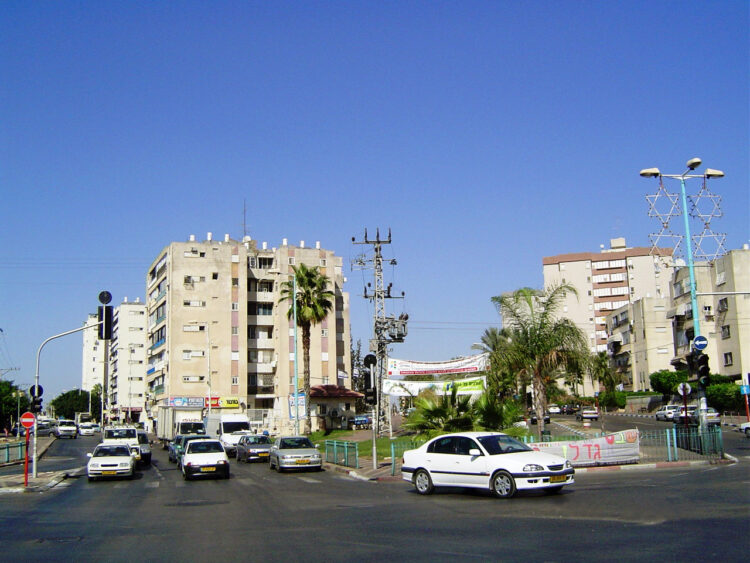
Israel dispatched the Border Police to Lod and declared a state of emergency there to limit the movements of its residents. Not since 1948, when Israeli Arabs were placed under military rule, had Israel resorted to such a drastic measure.
In Ramle, Jewish homes were attacked by Arabs, and in Acre, a Jewish-owned restaurant and hotel were burned.
Israeli President Reuven Rivlin urged Israeli Arab leaders to denounce the violence.
The leader of the Ra’am Party, Mansour Abbas, who suspended talks with Israeli politicians trying to unseat Netanyahu, called for the restoration of order. “In the midst of the popular outburst of understandable anger, we are beginning to see that things are developing in very dangerous directions, as peaceful popular demonstrations have turned into direct clashes which threaten the lives and safety of our youth,” he said.
The situation is indeed dire, and could become much worse in the days ahead.
